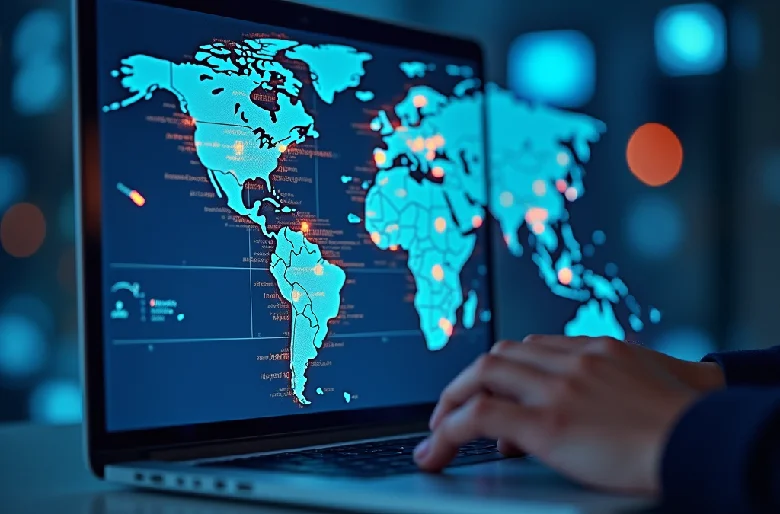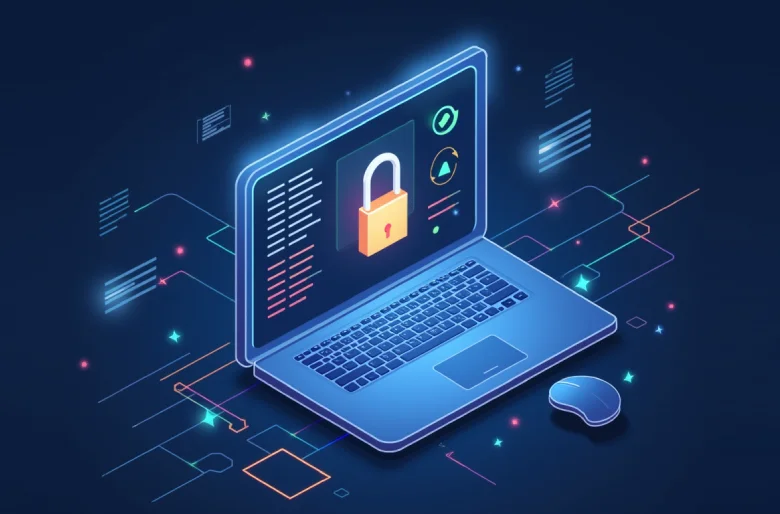Did you know that 72% of free VPN apps secretly track your online activities? This surprising fact reveals why millions of people might unknowingly risk their privacy while trying to protect it. Many people believe that a Virtual Private Network is an expensive tool for internet safety, but that’s not entirely true. Let’s dive into the world of free VPNs to understand their benefits, risks, and limitations.
Overview
In today’s digital world, securing your personal information is more important than ever. With hackers, trackers, and snoopers lurking online, users often turn to VPN services to protect their internet security and keep their data safe. While some VPNs come with subscription fees, others offer a free version. But how reliable are these free VPNs?
This article explores what free VPNs are, how they work, and whether they can provide a secure connection to ensure your safety and anonymous browsing online. We’ll also review the risks, best practices, and top options for free VPN services.
What is a Free VPN?
A free VPN is a service that lets users access secure internet connections without paying for a subscription. Just like paid VPNs, free versions create encrypted tunnels for your data, shielding your activity from hackers and trackers. This is achieved through data encryption and IP masking to keep your browsing private.
The key difference is that free VPNs often come with certain VPN disadvantages. While they provide essential security, their VPN features are usually limited compared to paid options. For example, free VPNs may impose VPN data limits or offer fewer VPN server locations. Additionally, free services may use weaker encryption methods, reducing their ability to fully protect sensitive information. Paid services often provide faster speeds and better reliability, but free VPNs are a good starting point for basic online privacy protection.
How Do Free VPNs Work?
A VPN works by rerouting your internet traffic through secure servers. When you use a VPN, your real IP address is hidden, and your data is encrypted. This ensures your activities remain private and safe from prying eyes.
Free VPNs function similarly but with some restrictions. Since they have limited resources, they might not offer the best VPN performance or VPN connection stability. Moreover, some free providers may fund their services through ads or by collecting user data, which can raise concerns about VPN privacy policies and security.
Despite these drawbacks, free VPNs can still be effective for public Wi-Fi protection, geo-restriction bypass, and general browsing security. However, it’s important to note that 38% of free VPNs may log user data, compromising the very privacy they promise to protect.
Common Uses of Free VPNs

1. Accessing Geo-Restricted Content
Have you ever tried to watch a show on a streaming platform only to see an error message that says, “This content is not available in your region”? Free VPNs can help bypass such restrictions by allowing you to connect to servers in different countries. This is known as geo-restriction bypass.
2. Enhancing Online Privacy on Public Wi-Fi
Public Wi-Fi networks, like those in cafes or airports, are often unsecured. Hackers can easily intercept your data on these networks. A free VPN encrypts your connection, keeping your information safe from prying eyes.
3. Bypassing Internet Censorship
In some countries, internet access is restricted. Certain websites and apps may be blocked. By using a free VPN, users can bypass these restrictions and regain access to the open internet.
Evaluating the Safety of Free VPNs
While free VPNs offer convenience, they are not without risks. Some services may compromise VPN security by collecting user data or displaying intrusive ads.
1. Potential Security Risks
Free VPNs may have weaker VPN security protocols. In some cases, they could expose users to malware or phishing attacks.
2. Privacy Concerns
Not all free VPNs respect user privacy. Some may keep logs of user activity or sell data to advertisers, violating VPN privacy policies. Remember, over 70% of free VPN apps have been found to secretly track online activities.
3. Malware and Adware Threats
Certain free VPNs have been found to contain hidden malware or adware. It’s essential to choose a reputable provider with positive VPN user reviews.
Red flags to watch for include apps asking for unnecessary permissions, constant pop-up ads, and vague privacy policies.
Limitations of Free VPN Services
Free VPNs often come with limitations that can impact user experience. These include:
1. Data Caps and Bandwidth Restrictions
Free VPNs may limit how much data you can use each month, making them unsuitable for heavy internet use. Most services cap data usage between 2GB and 10GB per month.
2. Limited Server Locations
Most free VPNs offer fewer VPN server locations, which can result in overcrowded servers and slower connection speeds.
3. Impact on Speed
Due to limited resources, free VPNs may suffer from poor VPN performance and reduced speed, especially during peak usage times.
| Feature | Free VPN Limits | Paid VPN Benefits |
|---|---|---|
| Speed | Often slower | Faster connections |
| Data Allowance | Usually 2-10GB/month | Unlimited usage |
| Server Options | Few locations | Global network |
Monetization Strategies of Free VPN Providers
Since free VPNs don’t charge users, they must find other ways to cover operational costs. Common strategies include:
1. Advertising and Sponsored Content
Many free VPNs display ads within their apps or websites to generate revenue. These advertising campaigns help fund the service but can be intrusive.
2. Selling User Data
Some providers may sell anonymized user data to third parties, raising concerns about VPN data security and third-party sharing.
3. Premium Plans
Many free VPNs offer basic features for free but encourage users to upgrade to a paid version with more VPN features and better VPN performance metrics.
Legal Considerations When Using Free VPNs

1. Legality of VPN Usage
In most countries, using a VPN is legal. However, some governments restrict or ban VPN usage altogether, making it important to understand VPN legal status and VPN regulations.
2. Terms of Service Violations
Streaming services like Netflix may block users who try to access their platforms using a VPN, citing violations of their terms of service.
3. Legal Repercussions
While unlikely, misuse of a VPN for illegal activities can lead to legal consequences. Additionally, using VPNs for torrenting could breach copyright laws.
Top Free VPNs Available Today
Here are four reputable free VPN providers:
1. PrivadoVPN
- Features: Strong security protocols, decent server options
- Pros: Reliable encryption, no data logging
- Cons: Limited monthly data cap of 10GB
2. ProtonVPN
- Features: Unlimited data, secure servers
- Pros: Excellent privacy policies, strong encryption
- Cons: Medium connection speeds
3. Windscribe
- Features: Multiple server locations (10+)
- Pros: Generous data allowance
- Cons: Complex setup process
4. Planet VPN
- Features: Simple setup, strong encryption, multiple platforms supported
- Pros: No data cap, good privacy features
- Cons: Limited server options for free users
Comparing Free and Paid VPNs
Paid VPNs offer superior performance, but free options can still be useful for light browsing and occasional use. Consider upgrading if you need better VPN connection stability, more VPN server locations, or stronger VPN anonymity features.
| Feature | Free VPN | Paid VPN |
|---|---|---|
| Data Limits | Often restricted | Unlimited |
| Server Locations | Limited | Extensive |
| Speed | Slower | Faster |
| Security Features | Basic | Advanced |
Best Practices for Choosing and Using Free VPNs

1. Criteria for Selection
Choose VPNs with transparent VPN privacy policies and positive VPN user reviews. Avoid those that require excessive permissions.
2. Tips for Safe Usage
Avoid sharing sensitive information when using a free VPN, especially on unverified servers. Test connection speeds during free trials to assess performance.
3. Red Flags
Stay away from VPNs that display constant ads or lack clear privacy policies.
Conclusion
Free VPNs can be a valuable tool for protecting your online privacy, but they come with limitations and risks. By understanding how they work and choosing reputable providers, you can enjoy safer browsing without spending a dime. Prioritizing internet security is essential in today’s digital world, so take the time to find a service that meets your needs.

